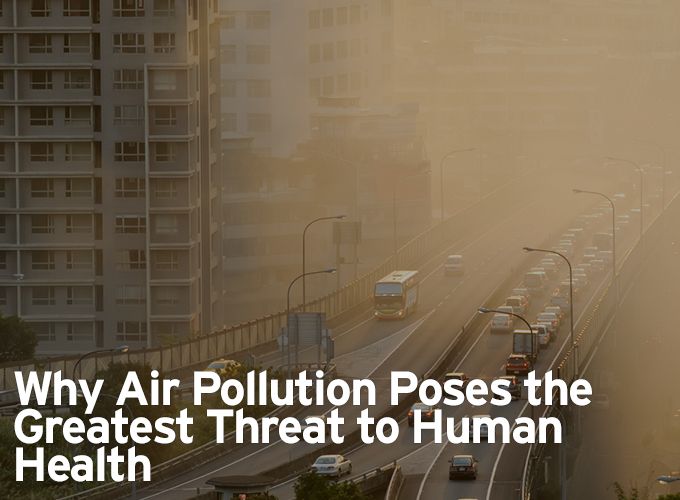Making your air better is as simple as trying to reduce your impact on the environment. Practically every time we consume something, we contribute to the air quality. We can choose to make it either better or worse. A few changes to your daily routine can make a huge difference
Megan Ray Nichols | Schooled By Science
It’s just a fact of life — air quality is directly related to long-term health. Poor air quality can lead to issues with asthma and other kinds of respiratory problems for both children and adults. But recently, it came to our attention that the air quality has a more significant impact on our health than we may realize.
A recent study found the air we breathe is the leading threat to public health that comes from our environment, and it’s not something we tend to think about in that way.
The study ranked the U.S. as 27th out of 180 regarding air quality. While we’re far from the bottom of the list, we’re not close enough to the top to be proud of ourselves, either. We’re outranked by 26 other countries, including Switzerland, France and Sweden.
The study included 10 different factors, and while the U.S. did reasonably well regarding actual air cleanliness, the overall score was brought down by issues like carbon emissions and deforestation. The air quality and how we affect it can have serious consequences.
Air Quality and Health
According to the World Health Organization, seven million people die each year as a result of air pollution. Air pollution isn’t just associated with asthma and respiratory distress — it can also impact things like stroke rates, cardiovascular disease and cancer. People who smoke are more likely to get lung, throat or mouth cancer, so other forms of air pollution can also directly impact rates of cancer.
The air we breathe during every part of our day — both indoors and outdoors — has a significant impact on our health. In fact, it turns out that the air in your home or office might be worse for you than the air outside. Of course, this depends a lot on where you live and what the conditions are like. If you’re prone to seasonal allergies you may have more trouble outside.
You can improve the air quality in your home by getting an air purifier and using warm days to help air out your house. Keep in mind that since allergies tend to get worse at night, you may want to close your windows then.
Even if you don’t have allergies, get to know the air quality in your area. Many airborne pollutants are carcinogens. If you know which ones are prevalent in your area, you can get a purifier that filters those out and get a feel for how often you should change the air filter in your home.
Reducing Air Pollution
Since the U.S. lost most points because of adding to air pollution, it’s vital that we talk about how to reduce it. Of course, the most critical aspect is voting and putting people who place our environment above corporate lobbyists. But you can make a difference on your own, as well.
The U.S. has a larger carbon footprint per capita than any other country, including China, even though we produce less carbon overall than they do. Cutting down your carbon footprint has a more significant impact than you might think, and it's easy to start. You can carpool to work, walk to the store and bike to the park. Driving less is one thing you can do to reduce your carbon emissions. You can also cut down on the things you buy, making an effort to purchase things you need and not what you want. This helps cut down on waste that ends up in landfills because the “latest model” came out.
Other methods might take a bit of an investment, but they can pay off in the long-run. Investing in renewable energy for your home is one of the most significant ways you can cut your emissions. Keep the air in your home healthier by making sure all your cleaners and solvents are properly sealed, and that you replace potentially harmful cleaners with less abrasive ones. White vinegar is an excellent substitute for everything from hardwood floor solutions to window cleaners.
Making your air better is as simple as trying to reduce your impact on the environment. Practically every time we consume something, we contribute to the air quality. We can choose to make it either better or worse. A few changes to your daily routine can make a huge difference
The content & opinions in this article are the author’s and do not necessarily represent the views of AltEnergyMag
Comments (0)
This post does not have any comments. Be the first to leave a comment below.
Featured Product


